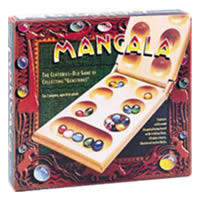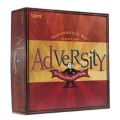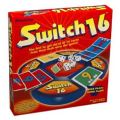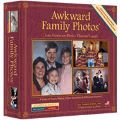
Official Mancala Rules
How To Play Mancala
2
Players
6+
Ages
20 MIN
Play Time
$9
Price
Mancala is an ancient two-player board game with roots tracing back thousands of years across Africa, Asia, and the Middle East. The game is played on a wooden or stone board with rows of small pits or cups, typically arranged in two parallel rows with larger "score" pits at each end. The objective of Mancala is to capture more stones or seeds than your opponent, typically by strategically distributing and moving them around the board. Players take turns scooping up and redistributing the stones, aiming to sow them strategically to maximize their own gains while impeding their opponent's progress.
Despite its straightforward rules, Mancala offers a rich tapestry of strategic depth and psychological gameplay. Players must carefully plan their moves, considering both immediate gains and long-term consequences. Successful gameplay often involves predicting your opponent's actions, bluffing, and adapting strategies on the fly to outmaneuver them. Mancala's blend of skill, intuition, and tactics has made it a beloved pastime across cultures and generations, with variations of the game found in diverse communities worldwide.
Mancala's enduring popularity lies in its accessibility and timeless appeal. Its simple yet profound gameplay mechanics make it easy to learn yet challenging to master, ensuring that each match is a dynamic and engaging experience. Whether played casually with friends and family or competitively in tournaments and clubs, Mancala fosters a sense of camaraderie and intellectual stimulation. As a cultural icon and symbol of strategic gameplay, Mancala continues to captivate players around the globe, uniting people across boundaries and generations through its universal language of strategy and fun.
Mancala is a family game that is played around the world and has been played for many years. Mancala is simple to learn how to play and does involve some strategy. Your goal is to capture as many stones as possible to beat your opponent. Mancala is a two player game that even little kids can learn how to play. Game set up is simple and is a great game to take with you on vacations. Try playing Mancala with one of you friends today!
Despite its straightforward rules, Mancala offers a rich tapestry of strategic depth and psychological gameplay. Players must carefully plan their moves, considering both immediate gains and long-term consequences. Successful gameplay often involves predicting your opponent's actions, bluffing, and adapting strategies on the fly to outmaneuver them. Mancala's blend of skill, intuition, and tactics has made it a beloved pastime across cultures and generations, with variations of the game found in diverse communities worldwide.
Mancala's enduring popularity lies in its accessibility and timeless appeal. Its simple yet profound gameplay mechanics make it easy to learn yet challenging to master, ensuring that each match is a dynamic and engaging experience. Whether played casually with friends and family or competitively in tournaments and clubs, Mancala fosters a sense of camaraderie and intellectual stimulation. As a cultural icon and symbol of strategic gameplay, Mancala continues to captivate players around the globe, uniting people across boundaries and generations through its universal language of strategy and fun.
Mancala is a family game that is played around the world and has been played for many years. Mancala is simple to learn how to play and does involve some strategy. Your goal is to capture as many stones as possible to beat your opponent. Mancala is a two player game that even little kids can learn how to play. Game set up is simple and is a great game to take with you on vacations. Try playing Mancala with one of you friends today!
- The word mancala comes from the Arabic word naqala meaning literally "to move."
- In Your Mancala Game You Should Have A Folding Wood Game Board
- 48 Colored "stones"
- Official Mancala Rules And Instructions

Have the most stones in your mancala after all of the stones on one side of the gameboard are captured.

Please keep in mind that the official Mancala PDF rules listed below could be different depending on the version you have. They should be an exact copy of what came in your original packaging. Download them to view now or print them for later use.
Share with us your comments, funny stories, tips, advice, strategies, creative ways to play, questions about playing, problems with the directions, etc. All submissions will be reviewed within 24 hours.
Tristen says:
You can put stones in the other side of the board you just have to make sure you already put one stone in each pocket on your side and one in your store before you go to the other side
04-12-2016
You can put stones in the other side of the board you just have to make sure you already put one stone in each pocket on your side and one in your store before you go to the other side
Joanna says:
When playing Mancala, when moving around the board counterclockwise, are you allowed to put stones in the opposite side of the board or are you suppose to stay on your side of the board?
07-20-2009
When playing Mancala, when moving around the board counterclockwise, are you allowed to put stones in the opposite side of the board or are you suppose to stay on your side of the board?
Here are some other games you might like to play at your next get together. Learning how to play new games can feel daunting at first but once you get the hang of it, it can be really fun to try out new games. You can also use our search feature at the top of the page to search for a specific criteria that might interest you. Who knows - you might just find your next favorite game.




